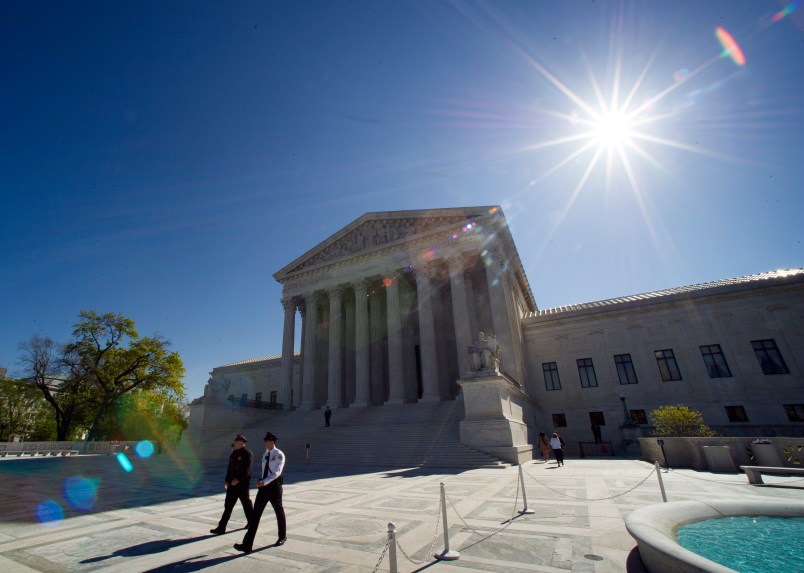WASHINGTON (AP) — The Supreme Court agreed Tuesday to hear an important case about whether states must count only those who are eligible to vote, rather than the total population, when drawing electoral districts for their legislatures.
The case from Texas could be significant for states with large immigrant populations, including Latinos who are children or not citizens. The plaintiffs claim that redrawing electoral districts based on the population of citizens and non-citizens alike violates the constitutional requirement of one person, one vote.
The challengers claim that taking account of total population can lead to vast differences in the number of voters in particular districts, along with corresponding differences in the power of those voters.
The Project on Fair Representation is funding the lawsuit filed by two Texas residents. The group opposes racial and ethnic classifications and has been behind Supreme Court challenges to affirmative action and the federal Voting Rights Act.
The court’s 1964 ruling in Reynolds v. Sims established the one person, one vote principle and means that a state’s legislative districts must have roughly the same number of people. But the court has never determined whether the state must count everyone or just eligible voters — or have some leeway to choose.
A ruling for the challengers would shift power to rural areas and away from urban districts in which there are large populations of immigrants who are not eligible to vote because they are children or not citizens.
The case, Evenwel v. Abbott, 14-940, will be argued in the fall.
Copyright 2015 The Associated Press. All rights reserved. This material may not be published, broadcast, rewritten or redistributed.







Because racism.
Anything to cheat.
Texas=where all the stupid ideas marinate.
Stupid is not quite the right word – try selfish, conniving and racist.
So putting aside the obvious racist attempt to disenfranchise immigrants of representation, these anti-democratic chazzers don’t even want children born in this country to be counted and their rights recognized by the government. And what about felons who cannot vote? Non-persons all?